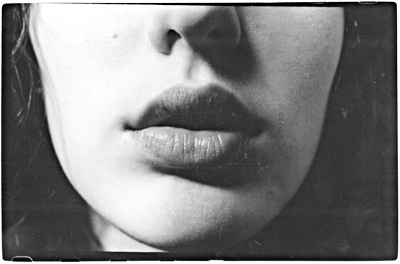All Nonfiction
- Bullying
- Books
- Academic
- Author Interviews
- Celebrity interviews
- College Articles
- College Essays
- Educator of the Year
- Heroes
- Interviews
- Memoir
- Personal Experience
- Sports
- Travel & Culture
All Opinions
- Bullying
- Current Events / Politics
- Discrimination
- Drugs / Alcohol / Smoking
- Entertainment / Celebrities
- Environment
- Love / Relationships
- Movies / Music / TV
- Pop Culture / Trends
- School / College
- Social Issues / Civics
- Spirituality / Religion
- Sports / Hobbies
All Hot Topics
- Bullying
- Community Service
- Environment
- Health
- Letters to the Editor
- Pride & Prejudice
- What Matters
- Back
Summer Guide
- Program Links
- Program Reviews
- Back
College Guide
- College Links
- College Reviews
- College Essays
- College Articles
- Back
Body Image vs The Media
Look out! Social media is making men and women hate their bodies! Make sure to watch out for magazines with photoshopped models, and websites advertising body perfection. Media is used globally and is the way people stay connected to the happenings around the world. Whether it is using Facebook to stay in touch with family members or listening to the news, you will always cross the advertisements about how to lose weight fast, or how to get the “perfect skin” on the media. Men and women around the globe strive to be like the un-naturally stick thin cover girls or the bulky bodybuilders, resulting in steroid use and eating disorders. This fake image is how women are mainly affected by the media.
Women and girls around the world are affected by social media. Media portrays models with 22” waists, large breast, and stick thin thighs. Pictures of women with perfect skin and abnormal body proportions are what girls even at the age of 10 want to grow up to look like. At the age of thirteen 53% of girls are unhappy with their bodies. By the time a girl is seventeen 53% changes to 78% (Lin). Humans are social creatures who want to be apart of something thus leading to thinking you must change your body to fit the social expectations (Lin). Photoshopped images of actresses, models, and singer/songwriters plastered all over the covers of magazines and posted to the internet give women the idea bodies can look the way the celebrities do, when in reality these famous cover girls look just like we do.To change themselves to fit this “ideal” body on the internet, women can buy dieting magazines, botox teas, or pills for thinning leading to uncontrollable, very harmful eating disorders (Lin). Although the media does have some strong negative impacts on women’s body image, there are also ways companies are trying to remind women around the world they are beautiful the way they are, and they don’t have to be “perfect” to be happy. For example, Victoria Secret, known for their beautiful and perfect models is starting a “Love Your Body” campaign using models with healthy bodies. Plus sized models are getting hired around the world and quickly becoming famous for the difference they are making for young girls who idolize them. Media does have a strong effect on women and girls body image, but today the issues are not only focused on women.
Women are no longer the only ones whose body image is influenced by the media. Men around the world are now being criticized for not having a toned enough body, or not enough muscle weight. Male body image concerns have dramatically changed over the last decade from 15% to 43% (Garfield) The fitting image for a man is to be strong, muscular, and to not show emotions. Men are constantly told to “man up” or “be a man”. 50% of men want to gain muscle, while 15% care about getting thinner (Fell). Men and adolescent boys see bodybuilder magazines wishing they could look like the overly muscled men on the covers. To form the rippling muscles seen online and in magazines, men begin to take steroids. Steroid use eventually results in addictions, acne, loss of hair, altered moods, and in extreme cases organ failure. When men face blame over their weight stress increases, and usually seeing photoshopped pictures of the ideal male body causes weight gain opposed to loss (Fell). Even some of the most famous and fit male models and bodybuilders get objections on their body saying they “look gross”. Men and boys are affected by the media.
It is obvious the effects social media has had on men and women all around the world more negative than positive.Today we need to stop paying attention to others build and attributes and focus on ourselves. No matter what someone looks like there will always be criticism against one's body on the media. Don’t let the media tell you what you should look like and how you should eat. Start using products such as Dove that promotes natural beauty, and buy magazines such as Seventeen which has promised to not photoshop their models. Take a stand and love your body the way it is.
Works Cited:
l, James S. "How The Media Makes Men Hate Their Bodies Too." Time. Time, 7 Aug. 2014. Web. 28 Oct. 2015.
Gardfield, Garner. "Statistics on Males and Eating Disorders | National Eating Disorders Association." Statistics on Males and Eating Disorders | National Eating Disorders Association. N.p., 2014. Web. 28 Oct. 2015.
Lin, Sharon S. "The Flaws of Frail: How Media Has Altered Body Image."Kidspirit Online 3 (2014): 100-03. Academic Search Premier [EBSCO]. Web. 20 Oct. 2015.Fel

Similar Articles
JOIN THE DISCUSSION
This article has 0 comments.

I was inspired to write this essay because I believe that body image is a large problem around the world. Now that we live in a time with technology and social media we need to address this issue in any way possible.